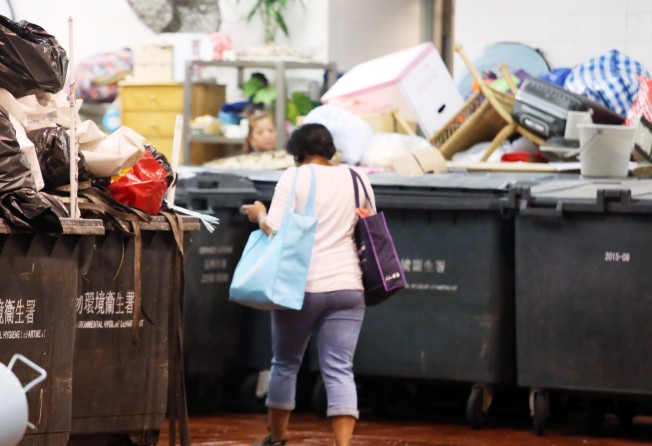Hong Kong citizens are generating more waste, despite what officials say

The Environmental Protection Department’s performance in its waste management programme worsens year after year. Predictably, its latest report, for 2016, extends this record of incompetence.
For the sixth year in a row, the two most important numbers on municipal solid waste have moved in the wrong direction – the amount of waste per person disposed daily has increased, while the waste recovery rate decreased. From 2015 to 2016, waste disposed went up (from 1.39 to 1.41kg), while waste recovered went down (from 35.4 to 34 per cent). That’s the worst performance in a decade. The results continue to move away from the targets of 0.8kg per capita disposed daily and a waste recovery rate of 55 per cent by 2022 under the “Hong Kong: Blueprint for Sustainable Use of Resources 2013-2022”.
The department blames the worsening of its overall performance on economic and population growth, spinning a few improvements in selected areas. However, performance indices such as per capita waste disposed daily take account of such growth, and the waste recovery rate, if done properly, has little to do with gross domestic product and population. South Korea and Taiwan, which have effective waste management, improved their performance impressively despite economic and population growth.
A four-year public campaign to reduce food waste has resulted in a 3.5 per cent decrease in domestic food waste generated. However, the total amount of food waste generated, including commercial and industrial waste, has increased by 6.5 per cent, and the per capita disposal rate of food waste has increased by 5.8 per cent.
The department’s waste recovery efforts remain a confused mixture of uncoordinated projects that lack the critical mass needed to make a difference across the board. Instead of expanding the types of waste to be recovered, it’s having to take the opposite step of reducing them as China tightens the standards on waste that can be exported there.
Has the department considered creative alternatives? For example, cooperating with China to jointly develop recycling technology and treating waste management on a regional basis; mandating by law waste separation at source; and taking over the collection and transport of food and recovered waste (instead of leaving it to small recyclers). Or will it carry on hyping dubious indicators of “success” while the objective results show failure on almost every count?
Tom Yam, Lantau